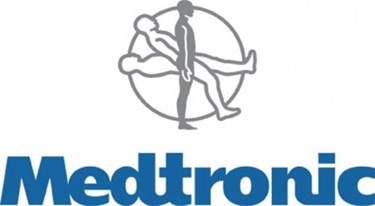Medtronic Decides How To Spend $9.3B Freed-Up Cash From Covidien Deal
By Jof Enriquez,
Follow me on Twitter @jofenriq

Device giant Medtronic plans to use the approximately $9.8 billion ($9.3 billion net of tax) in overseas cash it gained from its merger with Covidien to repurchase stocks, repay debts, invest in research and development, and acquire more companies.
Medtronic CEO Omar Ishrak recently told investors that a combination of stock buybacks and accelerated debt payments will be the priority, though some of the money could be allotted for possible acquisitions.
“This just gives us financial flexibility,” Ishrak said in an interview with the Star Tribune. “We’ll have to look at future deployment of that in some way, and immediate deployment as well. Financial flexibility simply means we can keep the money to do what we need to do, including acquisitions, as well as more direct returns to shareholders.”
Medtronic had downplayed criticisms that its merger with Covidien was solely for tax-saving purposes. Instead, it said the cash would create jobs and help U.S.-based, early-stage medtech companies. Since closing the deal to buy Covidien in January, Medtronic had embarked on an acquisition spree of smaller companies with promising device technology in different medical device segments.
“We are creating jobs in the U.S. and giving oxygen to the medical technology industry, especially early-stage companies,” Ishrak said in an interview with Bloomberg. “As a result of this structure we are able to invest much more in early stage and mature technology in the U.S. than we were before, as well as increase our shareholder returns,” Ishrak told the news outlet.
Medtronic bought Covidien for $49.9 billion earlier this year and moved its tax domicile from the United States to Ireland. The so-called tax inversion and subsequent internal restructuring freed up cash worth $9.8 billion Medtronic had held overseas. As part of the deal, Medtronic would have to pay $450 million in U.S. taxes, substantially less than the company would have paid the U.S. government if it had remained based in Minnesota while pulling the money back to the U.S.
In the Bloomberg article, Medtronic CFO Gary Ellis echoed Ishrak's pronouncements, saying, “Cash that Medtronic couldn’t use in the U.S. is now available for research and development, acquisitions or return to shareholders. We hope as we go forward we’ll be able to do more of this.”
Ishrak said the company is reviewing in the next six months which components of Covidien's portfolio – now part of Medtronic's minimally invasive therapies business – fit well with the company's plans going forward, and what to do with unwanted assets.
"Our integration of Covidien is going extremely well, and I am particularly pleased with the way our cultures continue to come together, evidenced by our high talent retention and employee satisfaction, and how we are delivering on the promised cost synergies," Ishrak says in a statement discussing Medtronic's second quarter earnings. "Our combination of solid constant currency revenue growth, strong leverage, and increased access to cash is positioning us to create long-term, dependable value in healthcare."
For the second quarter, which ended October 30, 2015, Medtronic says that overall revenue of $7.058 billion rose 6 percent on a comparable, constant currency basis, and including Covidien's previous year results. U.S. revenue grew 6 percent to $4.098 billion, non-U.S. developed market revenue increased 4 percent to $2.052 billion, and emerging market revenue expanded 11 percent to $908 million. The company updated its outlook for the second half of fiscal year 2016 to hit the upper half of its projection of 4 to 6 percent revenue growth, according to the statement.
